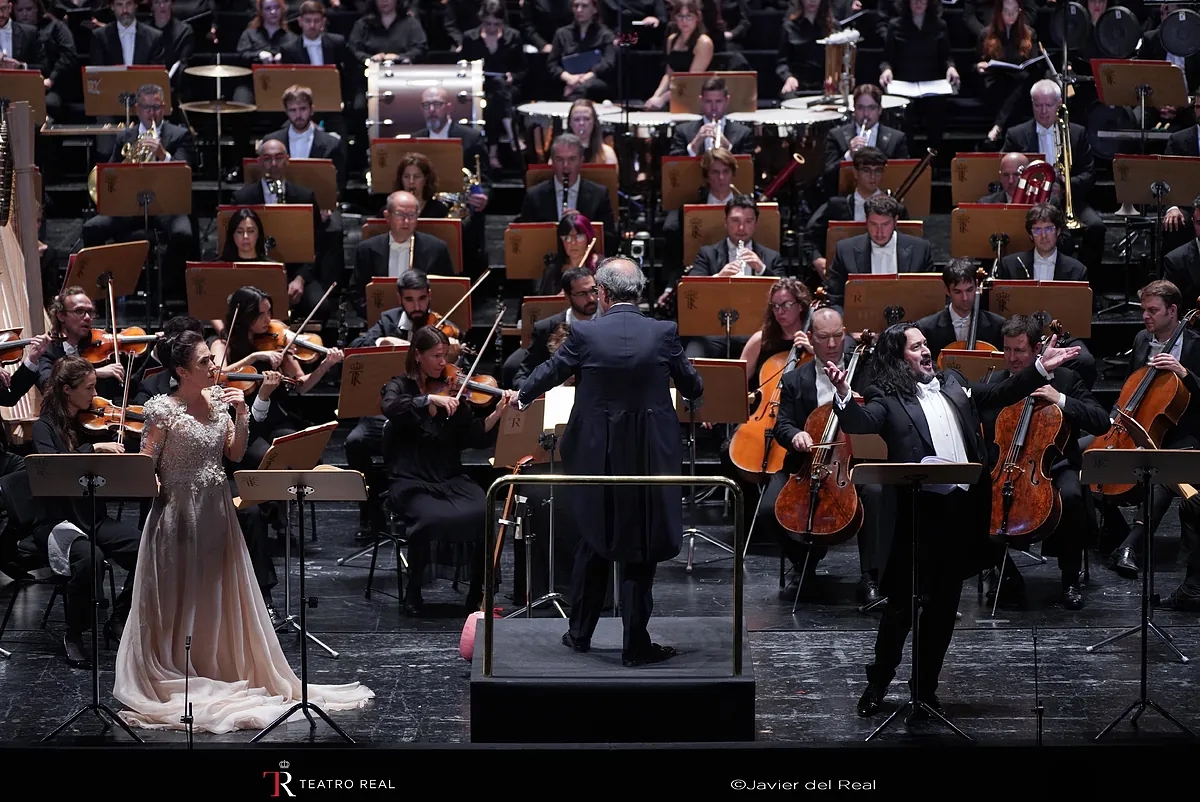Iris, by Mascagni at the Teatro Real: an impossible libretto

The Teatro Real presents the second of its eight operas in concert, alternating with the nine performed. This time, it's a pure concert opera, with the full orchestra and chorus occupying the stage, leaving the proscenium to the singers, who read the score at the music stands. In this case, the concert nature suggests two comments. On the one hand, the work arrives as a kind of masterclass in orchestral conducting . The conductor, Daniele Callegari, seems to behave like a professor, explaining: "Look how Mr. Mascagni conceived this opera, beginning it with an overture in which, as you can see, the different instrumental families follow one after the other, as my baton indicates; then, I give way to the chorus and soloists. Do you see it?"
On the other hand, the work is based on an impossible libretto by the prolific Luigi Illica, who wrote, either alone or in collaboration, a whopping 80 copies . The whole thing is absurd, an absurdity caused by the lack of definition when choosing the literary and dramatic style for a plot that oscillates between a serial novel, with a poor rejected girl, and the fantastic tale of a virgin expelled from the real world and practically transformed into a nymph in spite of herself. As a consequence of such confusion, the misadventures of this Iris, an unusual name for a Japanese woman, are of no interest when told in this way. And one might think that a clever staging would have been able to endow the crazy story with a fantastical theatrical vitality. It is possible that, in a performance, the conductor would have directed the orchestra in a less didactic way.
The fine cast, led by the ever-appreciated Ermonela Jaho, the excellence of the chorus, and Calligari's meticulous, exquisite conducting achieved a concert impeccable in its uniqueness . Performances like this speak volumes about the current state of opera in a theater. There must be reasons—artistic, business, expedient, or necessary—for programming such minor titles, not devoid of interest in principle. Now, each spectator is forced to learn to accept each opera as it is offered.
elmundo

